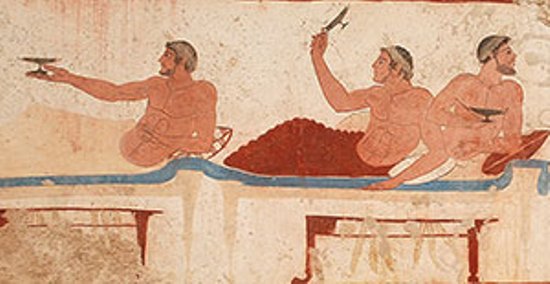Tag Archives: Odyssey
No one knows exactly when the Greek poet Homer lived. Herodotus, the father of history, guessed around 850 BC. Other ancient sources proposed that he was conjuring up transcendent imagery as early as the 12th century BC. Modern researchers, however, appear to place Homer in the 7th or 8th centuries BC. The dates, as you
The Birth of the Biography
By Ben Potter, Contributing Writer, Classical Wisdom What springs to mind when we think about literature of the Ancient World? Maybe it’s Homer’s Achilles dragging the corpse of Hector around Troy or Sophocles’ Oedipus stabbing out his polluted eyes. Perhaps it’s Plato’s Socrates holding forth or Herodotus’ Leonidas and his 300 Spartans. It even might
The Sirens: A Symbol of Fear
By Jocelyn Hitchcock, Contributing Writer, Classical Wisdom “For with their high clear song, the Sirens bewitch him, as they sit there in a meadow piled high with the moldering skeletons of men, whose withered skin still hangs upon their bones.” Odyssey. 12: 39-54 The elusive Sirens of the Aegean have been cornerstone characters in Greek
12 Ancient Greek Terms that Should Totally Make a Comeback

Learning Ancient Greek can be… challenging. For one thing, there are competing dialects (as was discussed in our Podcasts with Professors Episode with the Professor of Linguistics at the University of Cyprus.) As such, there are times when we aren’t even sure how the word is pronounced. There are also like 5 different translations for
Xenia for a Better World

Today’s Classics Challenge delves into the importance of Xenia… and how resurfacing this concept can make for both better individuals and society as a whole. But first… What is Xenia? Watch the video below to learn of this critical part of Ancient Greek (and indeed modern Greek) culture: While this was an essential part of
The Bloodless – but perhaps Most Clever – Greek Tragedy Ever Written

By Ben Potter and Anya Leonard Sophocles’ Philoctetes, first performed in 409 BC, isn’t a typical tragedy, certainly not in the more modern perception of the genre. There is no high death toll and no evil, underhand conniving that leaves characters bitter and crushed. In a word, there is no blood. In fact, as far








